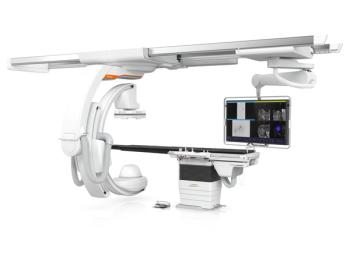
The system has an open architectural design to allow for third-party integrations.
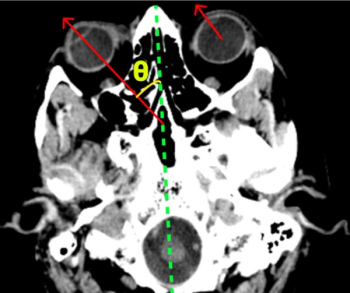
Artificial intelligence (AI) accurately diagnosed 79 percent of proximal large vessel occlusions with an ipsiversive gaze deviation on non-contrast computed tomography (CT), according to new research findings presented recently at the Society of Neurointerventional Surgery’s (SNIS) 19th Annual Meeting in Toronto.

What is the diagnosis?

The imaging agent is approved for use in 50 countries in Europe and Asia, but is not currently approved in the US.
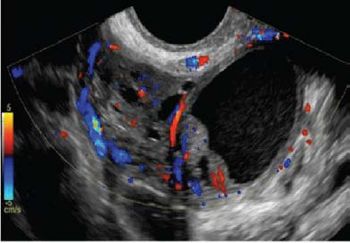
While the Ovarian-Adnexal Reporting and Data System ultrasound (O-RADS US) system provides a standardized and validated system for classification and risk stratification of ovarian and adnexal masses, a variety of clinical scenarios may prohibit or limit use of the system.
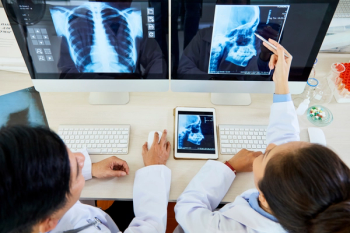
Comparing RVU output to the numbers of colleagues or even RVUs at previous jobs is often a futile exercise.

Catch up on the top radiology content of the past week.
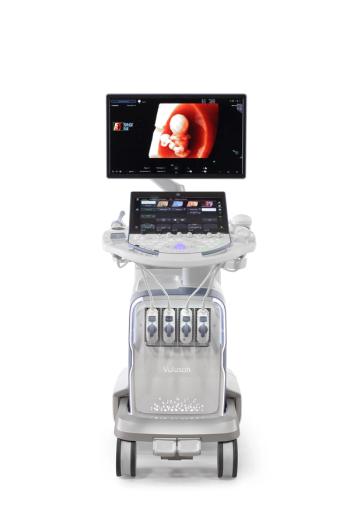
The next-generation ultrasound system reportedly offers enhanced images through graphic-based beamforming technology, a variety of artificial intelligence (AI)-powered tools and reduced exam times.
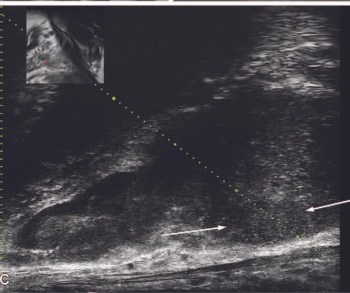
A recently published prospective study comparing multiparametric magnetic resonance imaging (MRI) and micro-ultrasound found similar detection rates for prostate cancer.
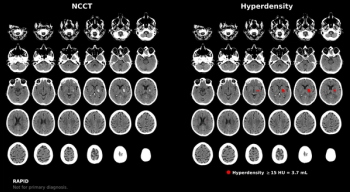
RapidAI’s Rapid Hyperdensity tool reportedly allows quicker assessment of hyperdense tissue in the brain via non-contrast computed tomography (CT) scans.

In a video interview, Morris Panner, the president of Intelerad Medical Systems, discussed key observations from the recent Society for Imaging Informatics in Medicine (SIIM) conference, recent research about artificial intelligence (AI) adoption and emerging goals for enhancing the efficiency of radiology workflows.
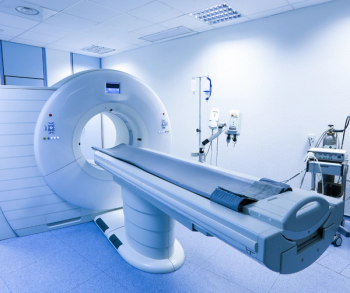
The Food and Drug Administration (FDA) has given the green light to Bayer to import foreign-labeled iopromide (Ultravist) to help alleviate ongoing supply challenges with iodinated contrast media in the United States.
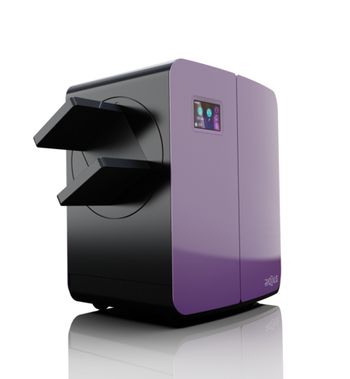
Offering images of high spatial resolution and a small system footprint, the new positron emission tomography (PET) modality from Radialis may facilitate enhanced imaging of emerging radiotracer agents and key biomarkers in targeted organs.
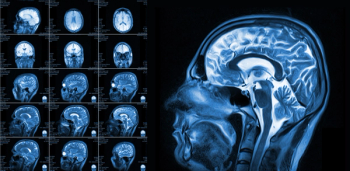
Utilizing susceptibility-weighted magnetic resonance imaging (MRI) in a study involving over 20,700 people, researchers found that drinking more than seven units (56 grams) of alcohol a week led to a higher accumulation of brain iron, which can trigger cognitive decline.

While the status of incentives, such as yearly bonuses or partnership track aspirations, can be a tricky conversation, ignoring it can be the tipping point for a radiologist’s exit to another practice.

Catch up on the top radiology content of the past week.
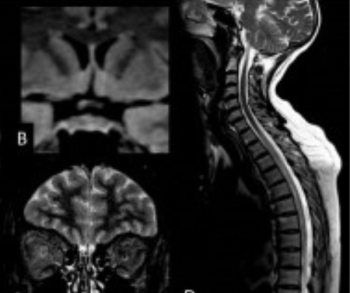
In an award-winning presentation at the European Congress of Radiology (ECR), researchers from the Hospital Universitario Basurto in Spain reviewed key neuroimaging findings on magnetic resonance imaging (MRI) for a variety of inflammatory lesions of the brain stem.
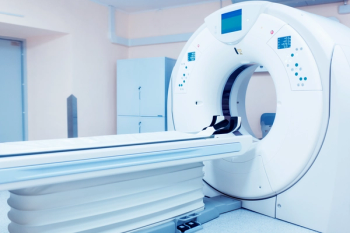
Emerging research shows the use of preoperative computed tomography (CT) led to improved success rates with device implantation, reduced procedure time and less device size changes in comparison to standalone transesophageal echocardiogram (TEE) for left atrial appendage occlusion (LAAO) procedures.

Women who had enhancing lesions associated with low-energy findings were more than twice as likely to have malignancy in comparison to those who had enhancing lesions without low-energy findings.

In a video interview, Jonathan Dillman, MD, MSc discussed a recently published statement from the American College of Radiology (ACR) that questioned the literature support for a March guidance from the Food and Drug Administration (FDA) about thyroid monitoring for children three years of age or younger within three weeks of exposure to iodinated contrast media (ICM).
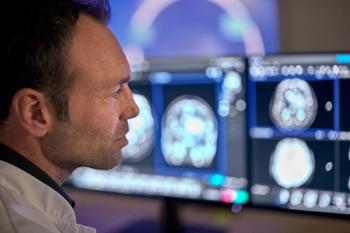
The artificial intelligence (AI) capabilities of the new software reportedly facilitate scanning times that are three times faster than conventional magnetic resonance image (MRI) scanners.

What is the diagnosis?
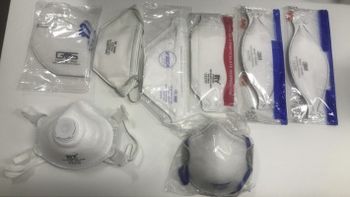
In their testing of eight commercially available filtering face piece (FFP3) respirators commonly utilized during the COVID-19 pandemic, researchers deemed that five of the face masks that contained ferromagnetic materials were unsafe to use in and around magnetic resonance imaging (MRI) devices.
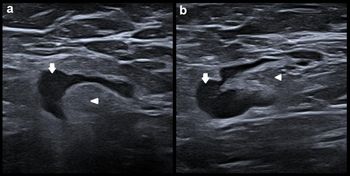
An updated machine learning model demonstrated a 23 percent improvement in accuracy and a 36.1 percent improvement in sensitivity over visual radiologist assessment of ultrasound images for differentiating malignant lymph nodes and benign COVID-19 vaccination-related changes to lymph nodes.

Juggling a physician’s perspective and a layperson’s view can be a tricky juxtaposition at times.

Catch up on the top radiology news of the past week.
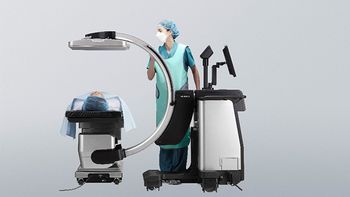
Designed for use in hospitals and ambulatory surgical centers, the FDR Cross may help improve workflows and efficiency for image-guided procedures.
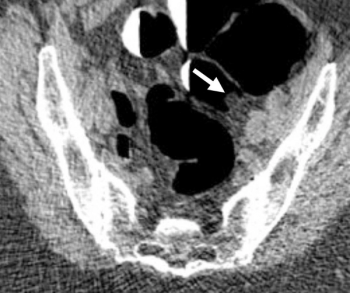
Citing “insufficient” evidence, the Centers for Medicare and Medicaid Services (CMS) has declined a formal request by the American College of Radiology and multiple patient advocacy groups to reevaluate the lack of Medicare and Medicaid coverage of computed tomography colonography (CTC) for colorectal cancer screening.

The new digital radiography series reportedly offers proprietary technologies that can preserve image quality and allow better control of X-ray dosage.
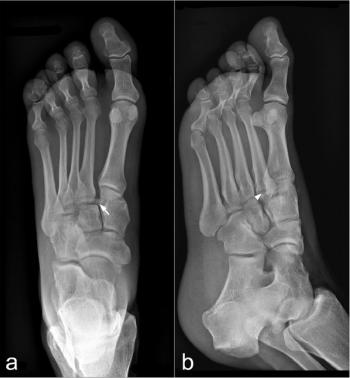
The study, involving 500 patients, showed that artificial intelligence (AI) assistance enhanced fracture diagnosis on radiographs and reduced reading time for radiologists of varying experience levels.